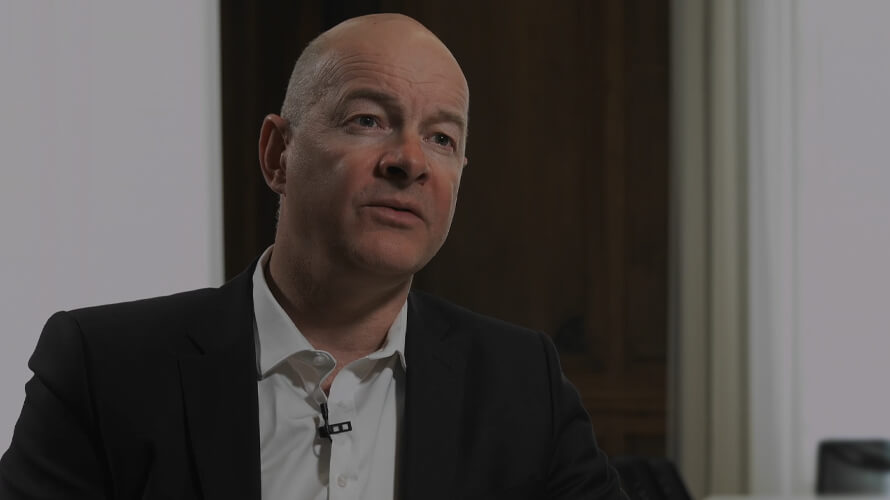Explore the ‘Decade That Matters’

Explore the Decade That Matters with BayWa r.e.
Our last chance to avert the climate crisis

Explore our blog
Read our latest content pieces
Explore our ‘What ifs’
Last year, the Intergovernmental Panel on Climate Change (IPCC) released its most stark warning yet of the impact of failing to limit global warming to 1.5°C. Corporations are responsible for 60 percent of global energy consumption. If we are to reverse climate change it is businesses, not governments, who must drive the renewable transition. Companies including Google, Apple and IKEA have led the way but will not make the difference. The next wave of corporations need to start their renewable journey. Learn more about the opportunities, overcoming barriers and the options available when starting a renewable journey.
Do corporations recognise their fundamental role in the renewable transition? What progress has been made and what is holding them back? The Energy Report 2019 has the answers. It is the first systematic, quantitative opinion survey carried out among 1,200 decision-makers from across six European countries.
The report is published in partnership with the RE-Source Platform, a European alliance of stakeholders representing clean energy buyers and suppliers. Organisations behind the platform include SolarPower Europe, Wind Europe, RE100 and the WBCSD.
RE100 members have been instrumental in making corporate renewable energy use more mainstream. We expect more and more companies to step up their ambition and work with policy makers, regulators and energy suppliers to drastically accelerate clean power deployment.

R.E.THINK Talk:
Rasmus NedergaArd, act renewable GmbH,
and Tracy Nilsson, adidas Group
Discover how multinational corporations like adidas are addressing the challenges of reducing carbon emissions throughout their supply chains, and how they are utilizing a new breed of energy consultant to help them.

R.E.THINK Talk:
Andrea Grotzke, Head of Energy solutions, BayWa r.e. AG
There are many options for corporations when sourcing renewables that can suit companies of all sizes and all budgets. Watch this film to find out which solutions could be right for you.
Mariana Heinrich, Manager,
Climate & Energy, World Business Council for Sustainable Development (WBCSD)
A corporate renewable PPA is a contract between a company (the ‘corporate buyer’ or ‘off-taker’) and the power producer to purchase electricity at a pre-agreed price for a pre-agreed period of time. The contract contains the commercial terms of the electricity sale: contract length, point of delivery, delivery date/times, volume, price and product. The electricity sold under a PPA can be from an existing renewable energy supply or a new build project.
Corporate renewable PPAs offer a range of benefits. They enable corporate buyers to gain visibility over future electricity costs and hedge against electricity price volatility, in addition to meeting carbon emission reduction targets and increasing brand leadership. PPAs are mutually beneficial for the power producers, as they provide a guaranteed income stream which enables producers to acquire finance to build new renewable energy projects.
PPAs are open to all. Large corporate buyers have led the way in developing viable business models for corporate renewable PPAs, allowing other companies to follow suit and enter the market. Companies with a lower electricity demand can join other corporate buyers to develop multiple-buyer, also known as aggregated, PPAs.
There are a number of ways for companies to adopt a renewable electricity strategy, all of which present different benefits to corporate buyers. In order of ‘greenness’, these are: on-site or near-site renewable energy generation (through corporate renewable PPAs or direct investment); off-site generation (through corporate renewable PPAs or direct investment); purchasing renewable certificates; and procuring green tariffs (where available in the local market).
This is a rapidly growing market and we continuously see new variations emerging, such as multi-technology PPAs and innovative pricing structures. WBCSD has produced a series of publications to help corporate buyers understand renewable PPAs and navigate different markets. View and download the publications here.

R.E.THINK Talk:
PASCAL CHALVON DEMERSAY, Chief sustainability & energy officer, Solvay
Find out how this leading advanced materials and speciality chemicals company has driven forward its sustainability agenda and proactively responded to customers who want a greener supply chain.
Australia's leading brewer has committed to sourcing 100 per cent of its electricity from renewables as part of an ambitious sustainability agenda. Listen to our podcast for some great insights into how they will achieve this, how barriers are being overcome and how the Australian sourcing market is growing.